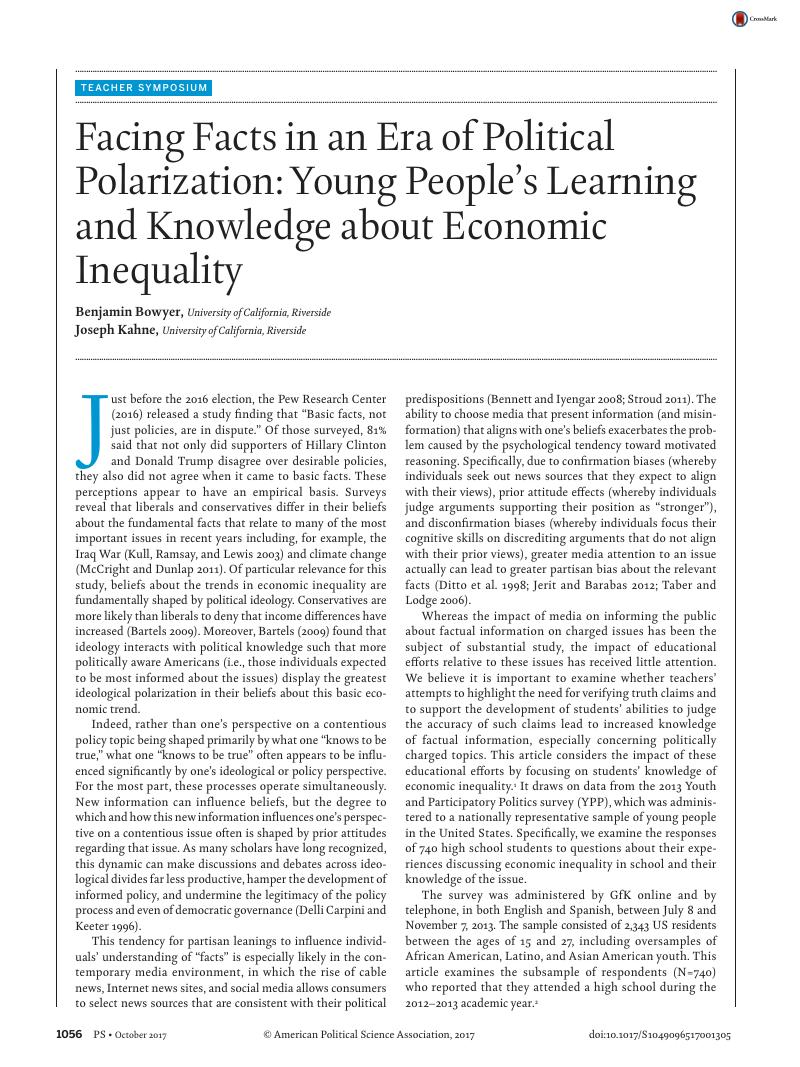Crossref Citations
This article has been cited by the following publications. This list is generated based on data provided by Crossref.
Kaufman, Chelsea N.
2021.
The Palgrave Handbook of Political Research Pedagogy.
p.
43.
Kaufman, Chelsea
2021.
Civic Education in a Fake News Era: Lessons for the Methods Classroom.
Journal of Political Science Education,
Vol. 17,
Issue. 2,
p.
326.



